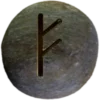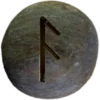Last Updated on November 12, 2024
Table of Contents


The Völsunga Saga (pronounced: VOHL-soong-ah SAH-gah) tells the legendary story of the Völsung family, tracing their adventures, trials, and tragedies. Also spelled Volsunga Saga, this tale dates back to the 13th century and appears in various Norse manuscripts. The saga draws on the heroic themes of honor, courage, and fate, with its origins in both the Poetic Edda and Prose Edda—important collections of Norse stories.
The saga follows several generations of the Völsung family, each facing challenges that test their strength and loyalty. It begins with Sigi, the family’s founder, and eventually introduces Völsung, his descendant, and Sigmund, Völsung’s brave son. Sigmund faces many dangers, including battles with mythical creatures and betrayal from close allies. His adventures lead to the birth of his son Sigurd, one of Norse legend’s most celebrated heroes.
Sigurd’s story forms the heart of the Völsunga Saga. Guided by wisdom and courage, he sets out to slay the dragon Fafnir, a creature guarding an enormous treasure. With the help of his horse Grani and his magical sword, Gram, Sigurd achieves victory over Fafnir. The saga also explores Sigurd’s relationship with Brynhildr (pronounced: BRIN-hild-er), a valkyrie and powerful warrior. Their love story becomes tragic, highlighting themes of love, betrayal, and fate.
The Völsunga Saga resonates with its gripping tales of heroism and the enduring legacy of the Völsung family. Its influence on Norse storytelling and medieval literature remains significant.
Elder Futhark Runes Associated with the Völsunga Saga
The Tiwaz and Fehu runes represent the spirit of the Völsunga Saga. Tiwaz, symbolizing courage and sacrifice, reflects Sigurd’s bravery against Fafnir. It also represents honor, a theme central to Sigmund’s life. Fehu, representing wealth and prosperity, aligns with Fafnir’s treasure and its impact on Sigurd’s fate. These Elder Futhark runes embody the saga’s focus on courage, fortune, and destiny.
Importance in Asatru
In Asatru, the Völsunga Saga holds valuable lessons about courage, loyalty, and fate. Practitioners admire the characters’ resilience and honor, taking inspiration from Sigurd’s bravery and Sigmund’s wisdom. The saga’s emphasis on family ties and heroic deeds reflects ideals Asatru values deeply. Through this saga, followers connect with the strength of their cultural heritage and explore the timeless qualities it celebrates.


